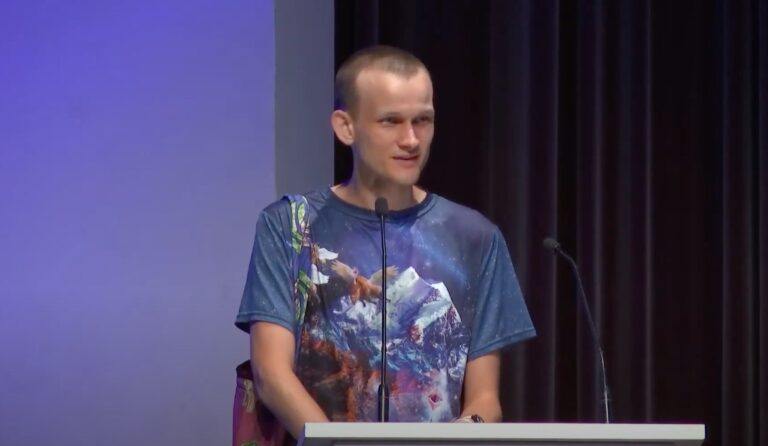
Earlier today, the Worldcoin project, a brainchild of Alex Blania and Sam Altman, made its grand debut on the OP Mainnet. The project, which aims to create a universally accessible financial network, has sparked a lot of interest and discussion in the crypto community. One of the most notable responses comes from Ethereum co-founder, Vitalik Buterin, who shared his thoughts on Worldcoin’s unique approach to proof of personhood.
Worldcoin’s vision is built around three pillars: World ID, a privacy-preserving digital identity; the Worldcoin token (WLD), a utility token that gives users a say in the project’s direction; and the World App, a platform for global payments and transfers. The Worldcoin token (WLD) is unique in that it is freely distributed to people simply for being unique individuals. This approach to token distribution is a first in the crypto world and has caught the attention of many, including Buterin.
Buterin, in his essay, delves into the concept of proof of personhood, a key component of the Worldcoin project. He acknowledges that there is no perfect form of proof of personhood and presents three different paradigms, each with its own strengths and weaknesses. These include specialized-hardware biometrics, general-purpose biometrics, and social-graph-based systems.
<!–
–> <!–
–>
In the case of Worldcoin, the project uses specialized-hardware biometrics, which Buterin notes are secure at scale but weak in terms of decentralization. However, he suggests that this weakness can be mitigated by holding individual Orbs (Worldcoin’s hardware for verifying unique personhood) accountable.
Buterin’s essay emphasizes the importance of treating these three techniques as complementary, suggesting a combination of all three could be the most effective approach. He also highlights the need for vigilance and the importance of pushing for open-source tech, third-party audits, and checks and balances.
Buterin commends the teams running these systems for their commitment to privacy, which he notes is more serious than most government or corporate-run identity systems. He acknowledges the challenges of creating a reliable proof-of-personhood system, especially for those outside the crypto community. Still, he remains optimistic about the potential value of such a system.
Another prominent person who has criticized Worldcoin is Bitcoin advocate Anita Posch:
- SEO Powered Content & PR Distribution. Get Amplified Today.
- PlatoData.Network Vertical Generative Ai. Empower Yourself. Access Here.
- PlatoAiStream. Web3 Intelligence. Knowledge Amplified. Access Here.
- PlatoESG. Automotive / EVs, Carbon, CleanTech, Energy, Environment, Solar, Waste Management. Access Here.
- BlockOffsets. Modernizing Environmental Offset Ownership. Access Here.
- Source: https://www.cryptoglobe.com/latest/2023/07/vitalik-buterins-take-on-worldcoin-wld-a-new-perspective-on-proof-of-personhood/
- :has
- :is
- :not
- 24
- 7
- 8
- a
- About
- accessible
- accountable
- Ads
- advocate
- aims
- alex
- All
- also
- and
- any
- app
- applicable
- approach
- ARE
- around
- AS
- At
- attention
- audits
- balances
- BE
- being
- biometrics
- Bitcoin
- built
- but
- Buterin
- by
- CAN
- case
- categories
- caught
- certain
- challenges
- Checks
- Co-founder
- collect
- combination
- comes
- commitment
- community
- complementary
- comply
- component
- concept
- could
- create
- Creating
- crypto
- crypto community
- CryptoGlobe
- data
- Decentralization
- different
- digital
- digital identity
- direction
- discussion
- distributed
- distribution
- each
- Effective
- emphasizes
- especially
- ESSAY
- ETH
- ethereum
- fairness
- financial
- First
- For
- form
- from
- general-purpose
- gives
- Global
- Global Payments
- Government
- Hardware
- he
- highlights
- his
- holding
- host
- However
- HTML
- HTTPS
- ID
- Identity
- importance
- in
- include
- Including
- individual
- individuals
- insight
- interest
- into
- IT
- ITS
- jpg
- Key
- KYC/AML
- Legal
- Lot
- made
- mainnet
- many
- May..
- more
- most
- Need
- network
- no
- notable
- Notes
- of
- on
- ONE
- OP
- open source
- Optimistic
- or
- ORBS
- otherwise
- outside
- own
- payments
- People
- perfect
- person
- personal
- personal data
- pillars
- platform
- plato
- Plato Data Intelligence
- PlatoData
- potential
- presents
- privacy
- process
- project
- projects
- prominent
- proof
- providers
- purposes
- Pushing
- reliable
- remains
- responses
- running
- s
- Sam
- Sam Altman
- say
- Scale
- Screen
- screens
- secure
- sensitive
- serious
- service
- service providers
- shared
- simply
- sizes
- some
- sparked
- Still
- strengths
- such
- Suggests
- system
- Systems
- teams
- tech
- techniques
- terms
- than
- that
- The
- the world
- their
- There.
- These
- third-party
- this
- those
- three
- to
- today
- token
- transfers
- treating
- true
- unique
- universally
- use
- users
- uses
- utility
- Utility Token
- value
- verifying
- vision
- vitalik
- vitalik buterin
- weakness
- Website
- which
- WHO
- with
- world
- zephyrnet













